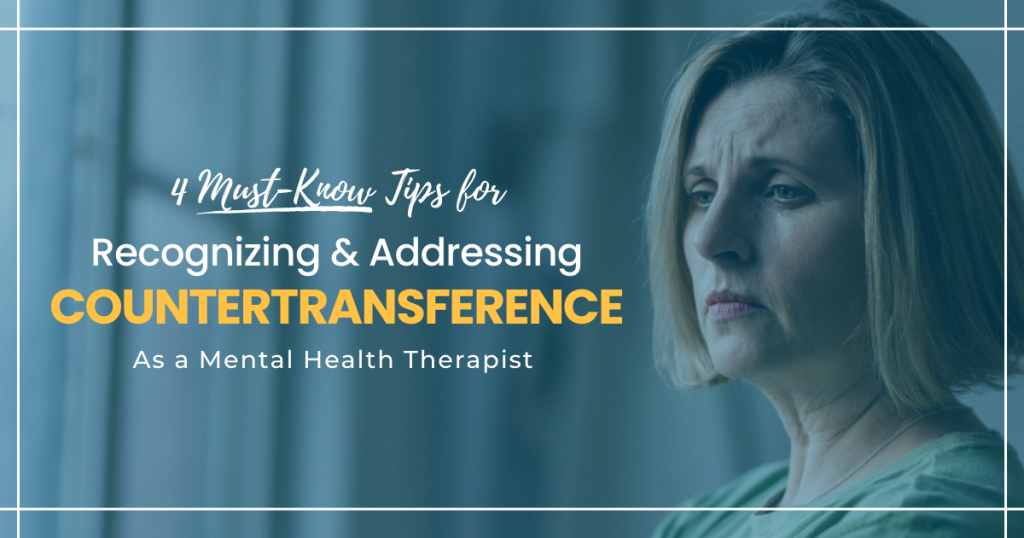As mental health therapists, we are taught to be empathetic and compassionate towards our clients. However, sometimes our own feelings and emotions can get in the way of our ability to provide effective therapy. This phenomenon is called countertransference.
Countertransference occurs when a therapist has an emotional reaction to a client that is unrelated to the client’s current situation.
It can happen when a therapist’s past experiences or personal beliefs influence their perceptions of the client or their situation.
This can lead to the therapist projecting their own issues onto the client or becoming too emotionally involved in the therapeutic process.
Here are some tips for recognizing and addressing countertransference in therapy:
- Be aware of your own emotional responses:
Pay attention to your own feelings and reactions when working with clients. If you notice yourself feeling angry, frustrated, or overly sympathetic toward a client, it may be a sign of countertransference.
- Practice self-reflection:
Regularly reflect on your own biases and experiences to help you identify any potential countertransference. Consider seeking supervision or consultation from a colleague or mentor to help you gain additional perspective.
- Separate your own issues from those of the client:
Remember that therapy is about the client, not the therapist. Try to stay focused on the client’s needs and avoid projecting your own issues onto them.
- Develop healthy coping mechanisms:
Take care of your own mental health and practice healthy coping mechanisms to manage your own emotional responses. This may include mindfulness, self-care, or seeking your own therapy.
Countertransference can be challenging to navigate, but with self-awareness and healthy coping mechanisms, we can provide effective therapy for our clients. Remember to prioritize the needs of the client and seek support when needed.
If you find yourself struggling with countertransference, consider seeking supervision or consultation from a colleague or mentor. With support and self-reflection, you can continue to provide effective therapy for your clients!
